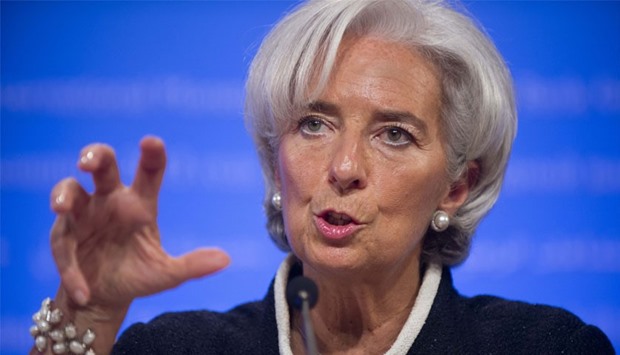The International Monetary Fund chief urged on Monday oil-exporting Gulf countries to introduce taxes, warning that low crude prices are likely to stay for an "extended period".
Gulf economies "need to strengthen their fiscal frameworks and re-engineer their tax systems by reducing their heavy reliance on oil revenues and by boosting non-hydrocarbon sources of revenues," Christine Lagarde told a forum in Abu Dhabi.
Lagarde, who was named to a new five-year term Friday at the global emergency lender, called for the introduction of value-added tax, "ideally a harmonised regional VAT".
"Even at a low single-digit rate, such a tax could raise up to 2 percent of GDP (gross domestic product)," she said.
Lagarde also called for a "greater emphasis" on corporate income taxes, as well as property and excise taxes.
The IMF chief pointed out that oil exporters in the Middle East and North Africa lost last year more than $340 billion in oil revenue from their budgets, amounting to 20 percent of their combined GDP.
"Not only have oil prices fallen by around two-thirds from their most recent peak, but supply and demand-side factors suggest that they are likely to stay low for an extended period," she warned.
The price of oil has dropped from over $100 a barrel in July 2014 to around $30 today.
The International Energy Agency said Monday that oil prices are unlikely to rise from current levels before 2017.
All the six Gulf Cooperation Council (GCC) states, which depend heavily on oil income, have reduced generous fuel, electricity and other subsidies to cut spending in the face of falling revenues.
Rich GCC countries host millions of foreign workers who are attracted by personal incomes that are tax-free.

